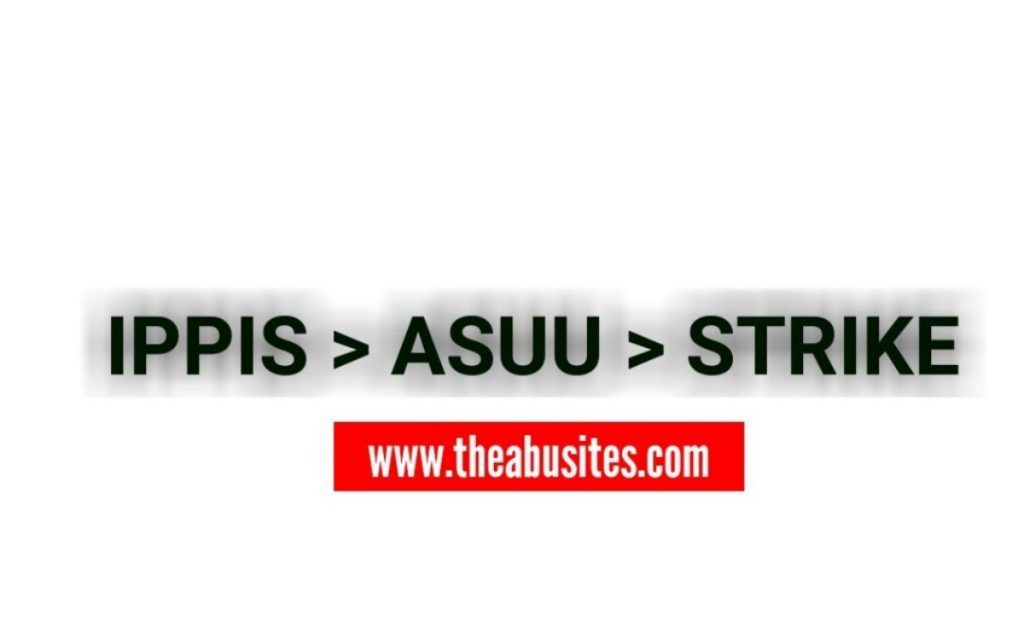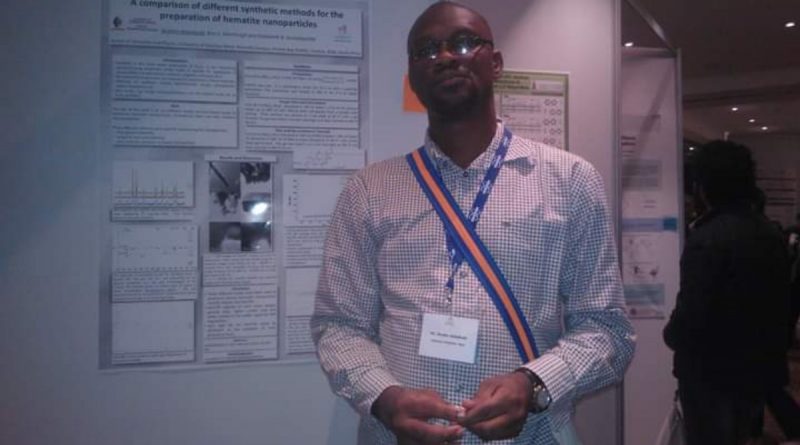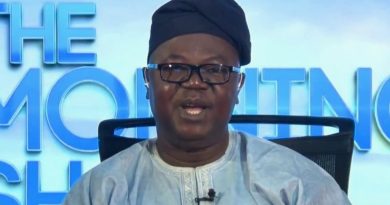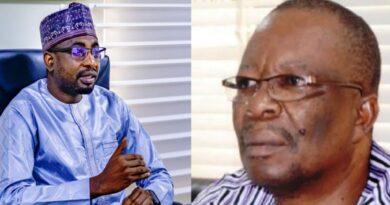On ASUU, IPPIS and the Federal Government
By Ibrahim Abdulkadir
ASUU’s engagements with the federal government has always been focused on the issue of funding of universities in order to improve the quality of knowledge and its impartation. Many may not know this, but the level of infrastructural decay in our universities is mind numbing.
Our libraries mostly consist of empty shelves and lacking in basic facilities and books required to address the needs of a university in the modern world. The laboratories are substandard dry labs without instruments for teaching nor equipment for research and most are fast becoming clustering points for rats and roaches.
It is painful to note that there isn’t one lab today in our universities that can host any serious research from beginning to completion. Our postgraduate student’s samples are normally packaged and sent to countries like UK, USA, Saudi Arabia, and South Africa for analysis. It is not strange to find lecturers contributing money from their meagre salary towards the completion of student projects.

This is exactly how not to do research. The condition of seminar/lecture rooms and staff offices is terrible. All of these are necessary requirements for any serious teaching and learning/research considerations.
The president was recently reported at a convocation ceremony in Jos, to have challenged the country’s academia and researchers to come up with innovative groundbreaking researches. But with the state of our laboratories, we may not be prepared to engage even in groundnut breaking research not to talk of groundbreaking ones.
ASUU is saying that governments must invest towards revitalization of federal universities. The amounts we spend on our universities are too paltry when compared to what countries like south Africa spend for the same purpose.
The government has reneged on all the agreements it signed in the past and ASUU is simply saying government must honor the agreements which it voluntarily entered with ASUU on revitalization and funding of university education in the country. The government though, rather than accept its failures and try to make amends, has resorted to taking extremely undesirable measures with the aim to repress and stifle ASUU.
ALSO READ: Be Prudent in spending your paid salaries as fight not over, ASUU warn members
One characteristic of some of the handlers of the affairs of this government is that they have this penchant for use of threat and force in engagements, even on issues where simple dialogue would suffice. They love to kick and scream blue murder where there isn’t any.
They love to pitch their adversaries against an unthinking public support base who will always come out gung-ho to attack anyone at the mention of the word ‘corruption’. corruption is now the catch word which they use to instigate public anger against their adversaries, true or false.
This unthinking support base spans all works of life. You find them amongst civil servants, supporters of the ruling party, parents, students, and sometimes even within the academia. The deception and serial insincerity of government notwithstanding. This is the reason why ASUU is currently being charged in the court of public opinion.
Ever since the beginning of the renegotiation of the ASUU/FGN 2009 agreement in 2017, the government side has shown an uncanny prowess for duplicity in an attempt to dodge its responsibilities. The government has shown no serious commitment whatsoever to invest in education.
Three years after its inauguration, the Babalakin committee has not completed the singular task of renegotiating the 2009 ASUU/FGN agreement due to dirty antics from the side of the government and IPPIS is obviously the umpteenth.
ASUU rejects the forceful enrollment of its members onto IPPIS because doing so, they assert, violates the Universities Miscellaneous Provisions (Amendment) Act 2003 which establishes autonomy for Nigerian federal universities.
This act is meant to protect federal universities from the bureaucracy of the civil service and also preserve the power of the council to perform its functions without undue external intrusions from the government.
A lot has been written about how IPPIS implementation interferes with the council’s ability to freely make and implement decisions and need not be repeated here. For me though, I believe there is more to IPPIS implementation than meets the eye and I shall come to that in a moment.
So, how does the government react to ASUU’s demand for it to respect and honour all the MOUs and MOAs it signed with ASUU, they come up with IPPIS. Enroll or you don’t get paid your salaries. Why do we need this now? Oh yes, we do!! they retort.
We need to streamline government payroll; we want to reduce waste you see. Members of ASUU are on multiple salaries. VCs inflate their payrolls and IPPIS is going to detect ghost workers, blah blah blah …. But government officials have not been forthright with the public as to why they insist on enrolling and paying university workers using the IPPIS platform.
For starters, IPPIS is not that foolproof system that they want you to believe, in fact, there have been several documented instances where IPPIS has either been breached or has been used to carry out organized fraud in government’s payroll (watch Brekete family for 23rd Aug. 2019 on YouTube for example), plus there are extant mechanisms for a more wholistic fight against corruption in the extant university laws which government has never explored.
As to whether IPPIS is adequately programmed to take care of the peculiarities of university workers, I think ASUU has been sufficiently vindicated from the way IPPIS wobbled and flopped the last two salary payments to tertiary institution workers.
ALSO READ: IPPIS/ASUU – Buhari orders payment of withheld lecturers’ salaries
But why does the government insist on using IPPIS for payment of universities workers’ salaries despite all the complaints and all the problems it has encountered so far. Why do they want to have this platform lord over universities and university workers? I see two reasons which are interconnected and I will try to explain presently.
The first is that IPPIS is a tool for repressive control. Government may claim that forcing university staff to enroll on the IPPIS platform is not in a bid to erode university autonomy and exert targeted control on university workers but the same government withheld university lecturers’ salaries for three months in a show of repressive force.
Talk about speaking from both sides of the mouth. We hear senior government officials spew hate towards ASUU, they do not like the fact that ASUU defends the rights of the poor to quality education by demanding that our universities be fixed. They would rather have those ‘pestering’ members of ASUU tamed and repressed so that they could no longer raise a finger against government’s insouciance towards education.
IPPIS comes in very handy for this purpose. By imposing IPPIS on academic staff, government intends to temper ASUU’s ability to exert pressure on it to do the right thing as government will be able to withhold staff salaries in a twinkle of the eye without the option of paying those salaries whenever the strike is called off (read Prof. Munzali Jibril’s interview to have an idea).
This means that government does not have to negotiate with any union that decides to go on strike for whatever reason, all they need to do is withhold members’ salaries, pretend they don’t even know that there is a strike and then wait on and see how long members can endure the pains of starvation.
If you have any inkling as to how long it takes for an ASUU strikes to be declared, the pains they endure in order to try to get government to sit with them, the months of lies, disdain and scornful treatment which they endure from government officials before a strike action is contemplated, you will agree with me that governments intentions are less than noble in seeking to have control over university staff salaries.
The government’s concern is not to fix the universities, but rather to fix the union, ASUU, which has constituted itself into a thorn in the government’s flesh. If the government succeeds in forcefully enrolling ASUU on the IPPIS platform, you can rest assured, it will be welcomed to the world of ‘exceptional and uncheckable irresponsibility’.
The second reason why I believe government wants IPPIS badly is not unconnected to the first and I will use the example of what happens in the country’s armed forces to buttress my point about the trajectory that I believe government intends to take in this regard.
Military officers get what you can call their ‘basic’ salaries from government via IPPIS, their allowances are later paid by either the Nigerian army, navy or air force depending on where an officer belongs to. So that, officers receive two payment alerts every month to complete their monthly remuneration.
It wasn’t always like this in the past, officers did get a single alert every month before they were enrolled on the IPPIS platform. But with IPPIS, government has been able to deflect responsibility for some of these payments unto the military authorities. This may be the same template that government is preparing to apply on university workers.
The heavy IPPIS deductions from salaries of staff that are enrolled on it in the last two months speaks to this. Government is likely to deflect responsibility for payment of some negotiated allowances in the future to the universities concerned and this may include sabbatical visiting and all other non-pensionable appointments. The IPPIS platform will make implementation very easy for government.
Recall that recently, the president and high-ranking officials of his government have intensified calls on universities in the country to find ways of upping their IGR generation. Because, they say, government cannot bear the responsibilities of funding universities alone. The government is surely aware that universities cannot shoulder the responsibilities of paying workers peculiar/earned allowances by selling pure water or baking bread.
Recall also, that the government, through the Babalakin renegotiation committee, has been trying to push for the introduction of a humongous tuition regime for students in federal universities which, they say, students can pay by taking education loans from yet to be established education banks, an idea to which ASUU is vehemently opposed. With the IPPIS platform, the government can easily push for these reforms without much of a resistance.
But if you give education loans to students to help them run through their programmes, would they not then be expected to pay back after graduation. For me, this is where the real work starts for these students.
The country cannot afford to have a huge chunk of its graduates roaming the streets in search of teaching jobs, or jobs in state and federal ministries that do not come easily and even where they come cannot pay their monthly bills whilst still having this huge debt to repay.
Again, what happens if the graduate fails to secure a job at all, or in the case of death. ASUU believes that government has the wherewithal to massively fund the education of its teeming youth.
ALSO READ: IPPIS – We are not stooges in the hands of Vice Chancellors – ASUU
ASUU sees this as a step towards marketisation and eventual commercialization and/or privatization of university education, a concept which will make learning, just like what obtains in our primaryy and secondary school systems, more susceptible to the influence of economic factors rather than academic excellence.
Thus, students inevitably become mere customers, while universities strive to achieve customer satisfaction as opposed to real knowledge and skills dissemination.
ASUU believes that government has no right to sell education to the highest bidders among its citizens and therefore opposes any policy (IPPIS inclusive) which is geared towards achieving this. This is the position for which ASUU is being rebuked and called corrupt.
ASUU is a selfless pressure group whose ideology is focused on the common good of the public rather than the private or individual interest. The country cannot afford to make education accessible for some (a few who can afford it), to the detriment of others bearing in mind, that good education is the only tool that we have and can deploy for the country’s social, political as well as economic re-engineering.
Good education equips future leaders with the tools required for a better and more robust creative as well as civic imagination that can guarantee the expansion of our democratic space and ensure freedom and equality for all.
ASUU believes that every Nigerian must have equal opportunity and equal access to quality education and any policy therefore, that seeks to introduce or propel the tiniest bit of class inequality within the polity will be forcefully resisted. It is an ideological struggle which requires sacrifices for the students, their poor parents and the future of this country and which members of ASUU have been ever willing to make.
ASUU is not an enemy to students and their parents as some are wont to believe, one can only crave patience and understanding from these two groups. It is indeed painful to see students, ex-students and parents hurl expletives at ASUU for daring to bare their own crosses.
In a sane world, this would have easily been a straight fight between student unions and the government with members of ASUU sipping tea in the background and weighing in favorably on the side of the students if need be. Whatever happened to student unionism.
Look at NANS for instance, how did one of the most powerful progressive vanguards in the defense of the integrity of public university education turn into an insecure tail wagging puppet on the laps of rival politicians in glaring display of unhindered sycophantic servitude to their very own oppressors. How is it that students don’t even recognize who their real oppressors are anymore.
They hail politicians whose children attend universities abroad. Politicians who do not even believe in our university system to start with and rain insults on ASUU, the only active vanguard today in defense of public education.
Our students use their data to like, share, and retweet photographs of politicians attending their children’s convocation ceremonies from universities in the UK and US while they wallow at home due to one ASUU strike or the other. I think parents and students need to know who their real oppressors are.
Politicians who send their children to universities other than the one they expect you to send your own children to do not deserve your support, they certainly do not deserve your protection. This of course, is not to lose sight of the positive individual contributions of some of our students who have shown a very good grasp of the situation and have been very supportive of the course.
Political yes-men often pretend that ASUU has no say in determining what system is used to pay university workers’ salaries this is far from the truth.
Collective bargaining is a fundamental right according to the ILO manual and it is the means through which employers and their organization’s trade unions come to collective agreement with regard to fair wages and working conditions. ASUU knows this very well.
ASUU also knows that federal or state universities are not private estates of any administration, neither do they belong to any political office holder (dead or alive). These institutions belong to all of us, including our progeny, the children of their offspring and generations of Nigerians to come in the far future. The institutions are more important than anyone of us.
Therefore, policies aimed at governing them must be products of painstaking deliberations so that collective agreements are reached that can guarantee workable as well as flexible solutions in accordance with acceptable international standards.
We are not interested in nurturing local universities, neither are we interested in ensnaring the future of our youth to the trappings of a nonchalant capitalist hegemony.
I think we should be genuinely embarrassed that senior government officials show this type of disposition in the 21st century. If government cannot trust its highest body of academics to advise it on something as trivial as salary payment system that will ensure flexibility for seamless running of its universities, then it is indeed shameful.
No one is in a better position to advise government on university matters than ASUU. Even president does not have more stake than ASUU in the Nigerian universities’ project. this is in fact, a given. At least, the president will not be looking for job if our university system collapses today, members of ASUU though, will be.
Members of ASUU have been veterans in this struggle for the survival of the soul of the university system in Nigeria. They have been in the trenches in selfless battles against the worst type of dictatorships this country has seen and have made unparalleled sacrifices to ensure that our tertiary institutions do not go the way of our primary and secondary education systems.
ASUU takes exception to its characterization by high ranking government official as corrupt or as a union that supports corruption. Coming from some of the most corruption prone offices in the land, it smacks of insincerity and hypocrisy on the path of government to use these untethered bulldogs to lambast and impugn the integrity of the country’s ivory towers. Only mad dogs tear away at their testicles.
We produce the required manpower for the country as a whole, including a lot of these politicians and government officials. ASUU freely admits that there are bad eggs amongst their ranks. It is like going to the market place and expecting that everyone at the market square is a saint.
ASUU is a union of all academics in Nigeria among whom you may find all shades of characters. ASUU does not protect neither does it defend offenders amongst its ranks. It only insists on fair hearing for errant members based on extant laws governing the university concerned. ASUU does not select its members, neither is ASUU a law enforcement body.
Membership in ASUU is also voluntary, but ASUU as a body is an advocate of probity and accountability. ASUU, as the only active vanguard in the defense of our university system will continue to stand firmly in the face of oppressors, those whose only ambition is to sound the death knell for our public universities in order to deprive the poor their only opportunity to freedom and power.
On ASUU, IPPIS & the Government: Final thoughts
On the whole, I think the public must be careful what they wish for. ASUU knows this terrain too well and is willing to make the necessary sacrifices. The least ASUU expects from you is your support. ASUU does not see strikes as expeditions that must be embarked on every other year, strikes are forced on ASUU by governments arrogance and pigheaded refusal to honour signed agreements.
But the IPPIS debacle has the potential of obliterating reforms that ASUU fought for and obtained in the last 30 years and may well turn out to be a last-ditch effort by ASUU to protect the right of the poor to quality education in our public universities. I think ASUU has its work cut out on all fronts.
ASUU has a lot of sensitizing to do, there is a need to keep the public abreast of engagements with government and as an insider, I know this is not one of ASUU’s strongest points. We cannot win the public over if they do not get our own perspectives on issues.
ASUU needs to work hard to push back that ‘corrupt’ and ‘sex-for-grade’ label that government agents are trying hard to project onto the public’s perception. ASUU may not be able to continue this struggle alone in the future and on this path of strike actions. Ours is a struggle for the benefit of all and can only profit from the support of other unions.
I do acknowledge that there are people out there who are jealous of ASUU’s strength and achievements so far and some even ignorantly wish that ASUU would falter and crumble. Though the spirit of activism and the will-power to struggle has since departed our students, I still see them as our best partners in this journey.
We may need to take them through some sort of critical pedagogy to conscientize them and help them and the nation reap the full benefits of critical thinking. We need our own ‘pedagogy of the oppressed’. Finally, the biggest obstacle to ASUU struggles at the moment is the crack that is rearing its head from within its ranks.
While most members remain focused and identify with the historic mission of the union of revitalizing the Nigerian university system and repositioning it as the hub for the transformation of Nigeria, a growing number of members are beginning to think that ASUU should rather concentrate more on members welfare, a few others though, prefer to see this struggle through the lens of politics of history, religion, and identity.
Members must eschew any divisive tendencies and remain one strong united entity. Together we bargain, divided we beg.
Dr. Ibrahim Abdulkadir is from the Department of chemistry, Ahmadu Bello University Zaria, Nigeria
For Advert Placement, Sponsorship/support, Article submission, suggestion, etc, Contact us: info@theabusites.com, +2349015751816 (WhatsApp)









The inability of ASUU, a union with members who are
knowledgeable in many fields, to achieve its goals for 30 years is both embarrassing and disappointing.
It speaks volume of the usefulness of the knowledge to society, and the gap between the town and the gown.
If the funds provided to universities cannot provide quality education through all existing faculties, why not close programmes that can’t be funded adequately?
The problem is not government funding of universities. It is the inability of universities to provide quality education with the resources they have.
Imagine, many universities have billions of Naira with TETFund that are yet to be accessed.
In addition, federal MDAs such as
PTDF, NCC, CBN, Federal Ministry of Works & Housing etc have been implementing intervention programmes overtime. Has anyone determined the total cost of these interventions?
The federal government that has been accused of not implementing agreements has been facing serious fiscal challenges.
It’s even surprising that universities have more non-academic staff. Is that how universities abroad deliver quality education?
It is clear that the basic interest of government in education is to have a literate society. Basic education serves this purpose. Technical skills and specialized knowledge has to be paid for because they are marketable.
Today, medical students pay about N50,000 per annum. On graduation, they find their way overseas. Their colleagues will be repaying their student loans.
ASUU should look inward and get things right within the walls of universities with the resources currently available.